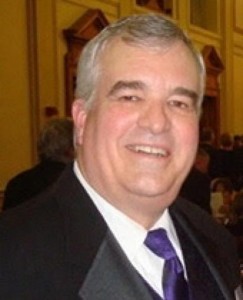3M’s OF LEADERSHIP: Motivation, Mixed and Mystery

by John J. Fontana, III, M.B.A., M.R.E.
First I don’t mean the company. While 3M is an extraordinary organization it does not apply to these thoughts except as 3M leaders apply these concepts. Leaders pay attention to motivation. If they follow the great ethical mandate: to know thy self, a leader needs to understand his or her own motivations. For indeed, motivations fluctuate and change given shifting situations or contexts.
If a leader expects to lead, it is important to understand the motivations of followers. These two directional suggestions follow the Emotional Intelligence formula of Daniel Goleman: An increase in self-awareness may lead to more effective self management and an increase in social awareness may lead to more effective relationship management.
The leader then needs to look and listen for patterns in self and others in order to anticipate and predict one’s own behavior and that of others. Always seek to understand people under normal conditions and under stress for behavior does change under stress.
An important starting point or assumption I have always found helpful is to understand that motivation is mixed, not necessarily pure. People’s espoused values may not always match up with their enacted values. When a gap occurs, what is important is not to jump to judgment about right or wrong or to make character judgments until you understand the situation and context. I am reminded of Steven Covey’s habit of “seek first to understand” or the Native American Indian mandate to first “walk a mile in their moccasins.” Often our surprise or disappoint or anger at the gap between espoused values and enacted values moves us quickly to judgment based on our negative emotional reaction. Here is where the leader needs to initially suspend or delay judgment, to become detached enough to pursue a mystery. Think Sherlock Holmes and his enthusiasm and curiosity when he says, “the games afoot!”
The leader needs to manage the negative effects or emotions in order to become curious (a positive effect) and understand that he or she has encountered a mystery to be probed for understanding. The leader needs to be comfortable wading into this tension or gap because the need is to understand the information and emotional data present. Then the leader needs to unpack the data to analyze it for filing or future use, for deeper or more exploratory probing or for decision and action.
This orientation to see life as mystery and people as mysteries allows the leader to manage his or her own expectations in a way that communicates openness toward the other rather then a judging encounter (unless that is the goal of the encounter). Openness and curiosity and seeing the other as fascinating in all their (and our) contradictions can build bonds of loyalty that, when understood, allow leaders to call (motivate) followers to extraordinary heights!
John J. Fontana, President, Fontana Leadership Development
 John J. Fontana is the President of Fontana Leadership Development, Inc., an organizational and leadership development firm that provides consultation, educational and facilitation services to improve the effectiveness of leaders in managing individual development and organizational change. Fontana Leadership Development, Inc. serves a selective and diverse client base including Fortune 1000 companies, small and mid-size businesses, family businesses, government groups, not for profit and religious organizations. Where there is change, there is emotion that either motivates or debilitates the judgment of leaders and groups. John’s work and educational experience have equipped him with the tools and resources to support leaders as they seek to manage people and processes in complex systems.
John J. Fontana is the President of Fontana Leadership Development, Inc., an organizational and leadership development firm that provides consultation, educational and facilitation services to improve the effectiveness of leaders in managing individual development and organizational change. Fontana Leadership Development, Inc. serves a selective and diverse client base including Fortune 1000 companies, small and mid-size businesses, family businesses, government groups, not for profit and religious organizations. Where there is change, there is emotion that either motivates or debilitates the judgment of leaders and groups. John’s work and educational experience have equipped him with the tools and resources to support leaders as they seek to manage people and processes in complex systems.
John has worked as a management consultant for Morrison Associates, a psychiatric and specialized medical corporation that “promotes better mental health for executives.” John is the past Executive Director of Partners for Catholic Health Ministry Leadership, a consortium of seventeen Catholic Health Organizations. John founded and was the Executive Director of The Crossroads Center for Faith and Work at Old St. Patrick’s Church in Chicago, a significant resource in the Chicago business community to encourage ethical and value reflection in the workplace.
John has taught leadership and management courses at Georgetown’s Executive Master’s in Leadership Program, and has taught at Notre Dame, Loyola, Mundelein and other universities.
John is a graduate of Holy Cross and holds a Master’s Degree from the Kellogg School of Management at Northwestern and a Master’s Degree in Religious Education from Loyola University of Chicago.
He is currently a Fellow at Woodstock Theological Center, in addition to his ongoing work with several organizations.
I am thrilled to have John as my guest leader. We have worked together effectively for years, first exactly 25 years ago when John helped us at Johnson & Higgins Chicago explore our personal values and how they were in sync with our daily work, e.g., our desire to be successful and to help our colleagues be successful as well, and our commitment to integrity in all of our work.
